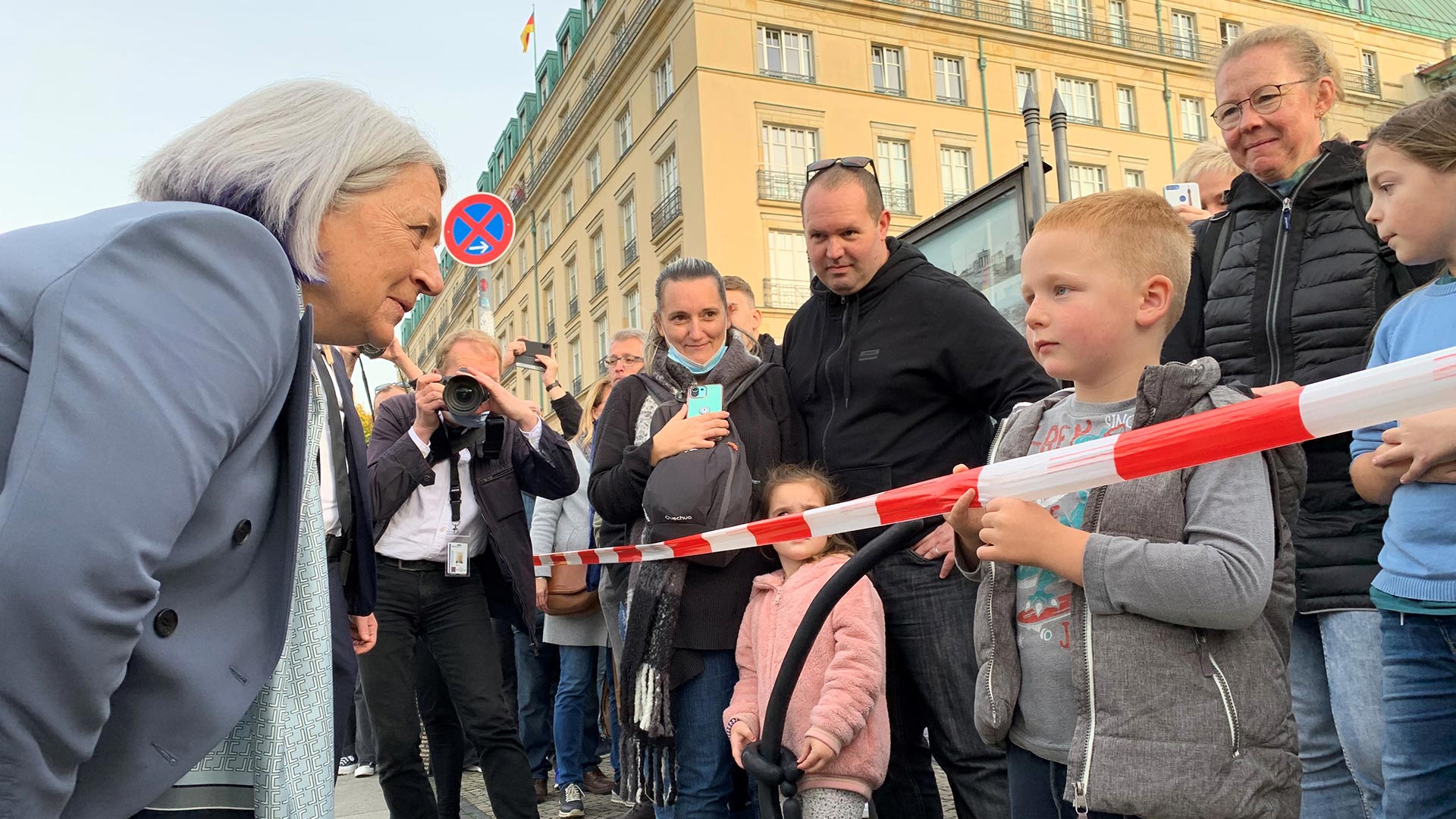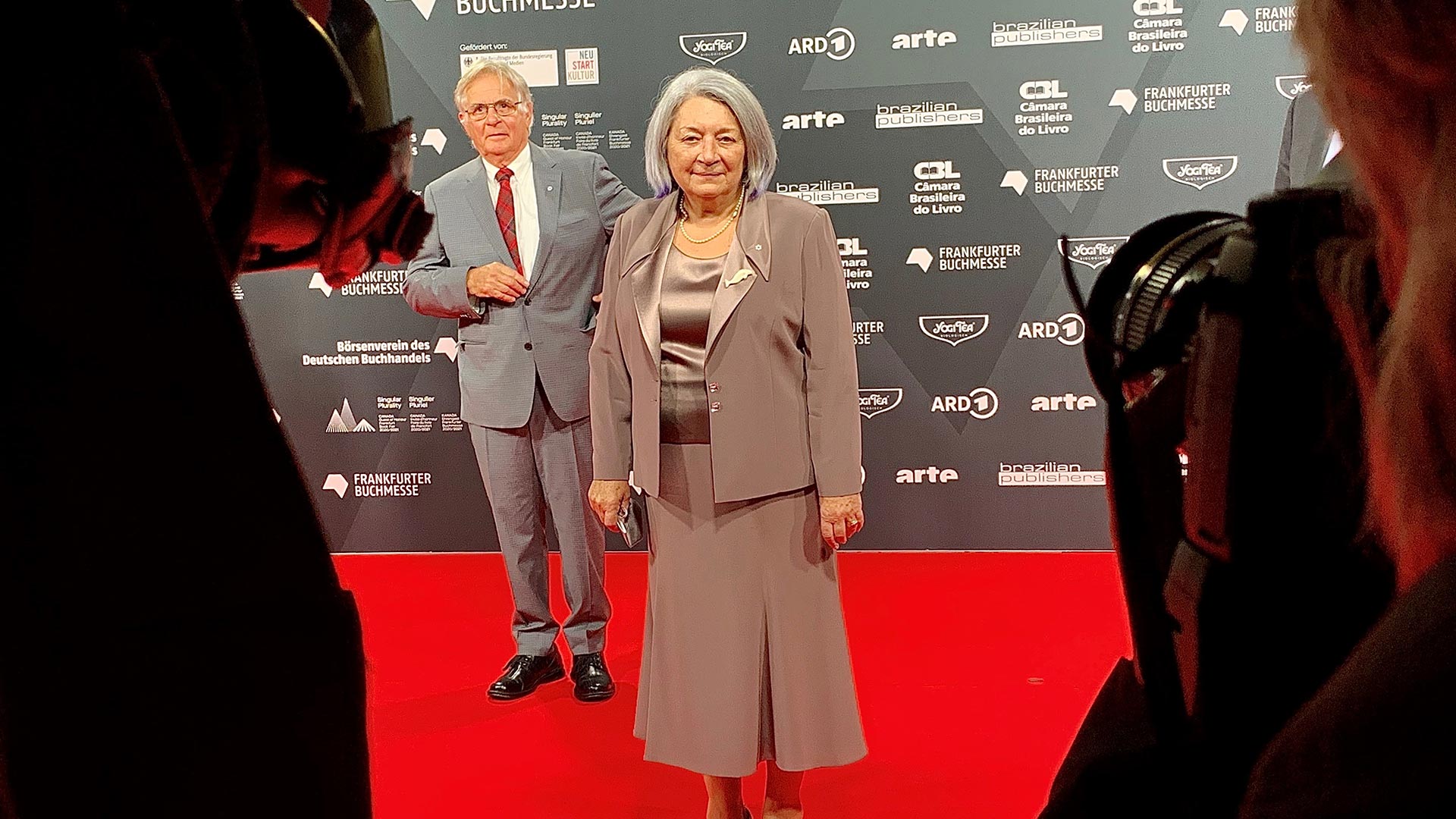After a whirlwind four-day trip to two cities in Germany, Governor General Mary May Simon made her way through the cabin of a Canadian charter plane to thank delegates and media for their presence on her first state visit since she was appointed.
When she reached the row occupied by APTN News reporters, we took the opportunity to ask her what she plans to do to unwind after arriving in Ottawa.
The answer she gave us was: reading, exercising, spending time outdoors, and doing paint-by-numbers.
“I’m not a painter, but I like doing it,” Simon added.
The recent trip overseas – Canada’s first state visit to Germany in 20 years – was meant to strengthen the political relationship between the two countries.
But its numerous private meetings, roundtable discussions, and museum visits also provided an important opportunity to discuss Canada’s relationship with First Nations, Inuit, and Métis – particularly in the context of the recent revelations tied to Canada’s residential school system.
“You know, I have to look at it in a way where my priority is always Indigenous issues because I’m Indigenous,” Simon told APTN in a sit-down interview earlier in the week.
“But at the same time, I need to remember – and I do – I am representing all Canadians.”

Simon made history back in July 2021 as the first Indigenous person to ever occupy the position of governor general.
During her recent trip, Simon explained how Germans have an innate understanding of reconciliation because of their own complicated history tied to the Holocaust.
“When I met with leaders, we had an opportunity to talk to each other about some of the initiatives that we have to undertake to address the wrongs of the past. And we also talked about how difficult is it to talk about these issues,” she explained.
“The president of Germany told me that he goes every day to an event that addresses reconciliation. And as governor general, I hope I’ll be able to do the same.”
While it’s one thing to travel across the world and see Indigenous cultural items on display in museums, it’s another thing to do it while feeling culturally supported.
That’s where Louise Bernice Halfe and Lisa Koperqualuk come in.
The pair served as both delegates and as cultural support for Simon, during the trip.
“It challenged my core values. Like, I’m not used to formal dress, formal behaviour, and having to watch my mouth,” Halfe said, laughing.
Halfe is the first Indigenous Parliamentary Poet Laureate of Canada and a residential school survivor.
Given her seven years spent at Blue Quills residential school in Alberta, Halfe says discussions about the dark residential schools legacy were painful and challenging – but necessary in the long run.
“Sometimes my anger and my bitterness is, like, way up there right? Other times I’m okay, I’m calm. And if it hadn’t been for my personal therapy and going back to our spiritual practices – I wouldn’t be able to do the work that I do,” she explained.
“And it’s so important to not only be intellectual about it, but to have the emotional breath with it so that you can reach people and educate the public.”

Representing Simon’s home base, the northern Quebec region known as Nunavik, was Lisa Koperqualuk of Puvirnituq.
Koperqualuk is the vice-president of the Inuit Circumpolar Council in Canada. During her visit to Germany, she was allowed to discuss issues specific to Nunavik – like mental health and educational service gaps – while also learning from Germany’s efforts to reconcile with its own people.
“We see that the experience of the Jews here has been particularly hard. And also in a sense satisfying because it’s really good to see the efforts that the German society makes to acknowledge the wrongs that had happened in the past,” Koperqualuk explained.
“And so it makes me see the possibilities of what can be done to really show and reconcile with past wrongs, just as so many past wrongs have been done in Canada.”
Even half a world away, the goal was to flip the script on Indigenous issues in Canada and ground Germany’s fascination with First Nations in fact.
Also important according to a statement released by Rideau Hall ahead of the state visit: “reconciling past wrongs with future hope.”
The Office of the Governor General says it can’t disclose when or where Simon’s next visit will be – but she insists she will be visiting First Nations and Inuit communities at some point during her tenure.
“That’s probably my priority,” Simon said with a chuckle.
“But part of that priority includes diversity and inclusion – and that’s some of the work we’ll be doing as well.”










